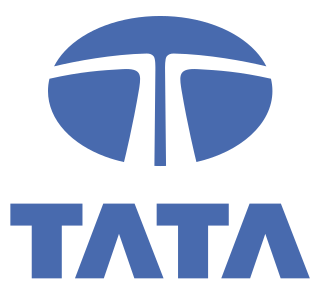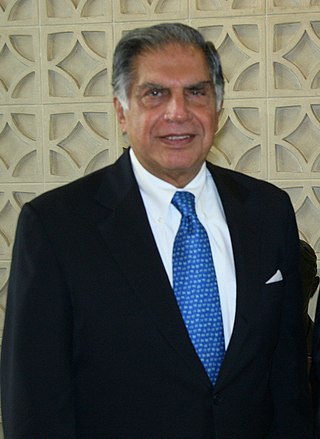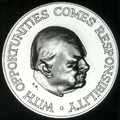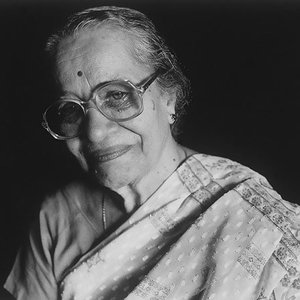Related Research Articles

The Tata Group is an Indian multinational conglomerate headquartered in Mumbai. Established in 1868, it is India's largest conglomerate, with products and services in over 150 countries, and operations in 100 countries across six continents. Acknowledged as the founder of the Tata Group, Jamsetji Tata is sometimes referred to as the "father of Indian industry".

Jehangir Ratanji Dadabhoy Tata was an Indian aviator, industrialist, entrepreneur and chairman of Tata Group.

Ratan Naval Tata is an Indian industrialist, philanthropist and former chairman of Tata Sons. He was a chairman of the Tata Group from 1990 to 2012, and interim chairman from October 2016 through February 2017. He continues to head its charitable trusts. In 2008, he received the Padma Vibhushan, the second highest civilian honour in India, after receiving the Padma Bhushan, the third highest civilian honour in 2000.

The Tata Memorial Hospital is situated in Parel, Mumbai, in India. Also popularly known as TMH. It is a specialist cancer treatment and research centre, closely associated with the Advanced Centre for Treatment, Research and Education in Cancer (ACTREC). The centre is the national comprehensive cancer centre for the prevention, treatment, education and research in cancer and is recognized as one of the leading cancer centres in this part of the world. It is an autonomous body funded and controlled by Department of Atomic Energy, Government of India which also oversees the administration of institute since 1962.

Sir Dorabji Tata was an Indian businessman of the British Raj, and a key figure in the history and development of the Tata Group. He was knighted in 1910 for his contributions to industry in British India.
The Sir Dorabji Tata Trust was established by Sir Dorab Tata, the elder son of Tata Group founder Jamsetji Tata. Founded in 1932, it is one of the oldest non-sectarian philanthropic organisations in India.

Winston Churchill Memorial Trusts (WCMT) are three independent but related living memorials to Sir Winston Churchill, based in the United Kingdom, Australia, and New Zealand. They exist for the purpose of administering Churchill Fellowships, also known as Churchill Travelling Fellowships, to provide an opportunity for applicants to travel overseas to conduct research in their chosen fields.
Vivek Bhandari is an Indian academic. From 2007 to 2011, he served as Director of the Institute of Rural Management Anand (IRMA), a premier management school located in India. Bhandari was one of the youngest business school directors in India when he took over this responsibility, and during his tenure IRMA's research impacted policy at the national level in a variety of fields related to rural development. As a result, the institute also received national and international recognitions under his leadership, most notably from the Canadian agency, the International Development Research Centre (IDRC), as well as ministries in the Government of India. He is now on the faculty of Krea University.
Chetan Eknath Chitnis is an Indian scientist in the field of malaria research. He is the head of the Malaria Parasite Biology and Vaccines Unit at the Institut Pasteur in Paris and an elected fellow of the Indian Academy of Sciences (2009) as well as Indian National Science Academy (2014). He received the Shanti Swaroop Bhatnagar Award in 2004 and the Infosys Prize in Life Sciences 2010. Chitnis is the former principal investigator of the malaria research group at the International Centre for Genetic Engineering and Biotechnology (ICGEB) in New Delhi.

Kamal Jayasing Ranadive was an Indian biomedical researcher known for her research on the links between cancers and viruses. She was a founding member of the Indian Women Scientists' Association (IWSA).
The Jawaharlal Nehru Trust Scholarship U.K. was founded by Admiral Lord Mountbatten of Burma in 1966 as a tribute to the India's first Prime Minister – Jawaharlal Nehru – after his death in 1964.

Naval Hormusji Tata was an adopted son of Sir Ratanji Tata and a noted alumnus of the Tata Group. He is the father of Ratan Tata, Jimmy Tata and Noel Tata.
Luis Jose De Souza is an Indian surgical oncologist and the founder of Shanti Avedna Ashram, a charitable trust which runs a network of hospices in Mumbai and Goa. He has also contributed to the establishment of Indian Cancer Cell, an educational program co-sponsored by Tata Memorial Centre, Union for International Cancer Control (UICC) and Indian Cancer Society, for creating cancer awareness in schools. The Government of India awarded him the fourth-highest civilian honour of the Padma Shri in 1992.
Darab Jehangir Jussawala (1915–1999) was an Indian medical-cum-surgical oncologist, medical writer and the director of Tata Memorial Centre. He was the co-founder of Indian Cancer Society, along with Naval Tata in 1951, and the founder of the Indian Cancer Rehabilitation Centre in Parel, Mumbai, in 1956, the first such centre in India and the largest in Asia. He served as the director of Lady Ratan Tata Medical and Research Center and as the honorary consultant at two Mumbai hospitals, Breach Candy Hospital and Jaslok Hospital. An elected fellow of the Royal Society of Medicine, National Academy of Medical Sciences, Indian Academy of Sciences, Indian National Science Academy and the American College of Surgeons, he was a recipient of the Dhanwantari Award as well as several Oration Awards. The Government of India awarded him the third highest civilian honour of the Padma Bhushan, in 1975, for his contributions to Medicine.
Prafulla B. Ragubhai Desai is an Indian surgical oncologist and a former chairman of the Research Advisory Committee on Oncology of the Indian Council of Medical Research. He is credited with the first bone marrow transplantation in India, which he performed with his team in 1983. He is a former director and superintendent at Tata Memorial Centre, Mumbai (1973–1995) and continues his association with the institution as their professor emeritus. He is one of the founders of the Rural Cancer Centre established by Tata Memorial Centre at Barshi, Mumbai and serves Breach Candy Hospital as a surgical oncologist and the Indo-Global Summit on Head and Neck Oncology (IGSHNO) as a member of their national faculty.
Vijay Kumar is an Indian molecular biologist, virologist and an honorary scientist at the International Centre for Genetic Engineering and Biotechnology. Known for his research in hepatology, Kumar is an elected fellow of National Academy of Sciences, India, National Academy of Medical Sciences, and National Academy of Agricultural Sciences as well as a J. C. Bose National Fellow of the Department of Biotechnology. The Council of Scientific and Industrial Research, the apex agency of the Government of India for scientific research, awarded him the Shanti Swarup Bhatnagar Prize for Science and Technology, one of the highest Indian science awards for his contributions to Medical Sciences in 1997.
Anurag Agrawal is an Indian pulmonologist, medical researcher, Dean of the Trivedi School of Biosciences at Ashoka University, and the former director of the Institute of Genomics and Integrative Biology, a CSIR institution. Known for his studies on lung diseases, Agrawal has been a senior fellow of the DBT-Wellcome Trust. The Council of Scientific and Industrial Research, the apex agency of the Government of India for scientific research, awarded him the Shanti Swarup Bhatnagar Prize for Science and Technology, one of the highest Indian science awards for his contributions to Medical Sciences in 2014. He is also a recipient of the National Bioscience Award for Career Development of the Department of Biotechnology which he received in 2015 and the 2020 Sun Pharma Science Foundation award in Medical Sciences.
Thomas John Pucadyil is an Indian molecular biologist, biochemist and a professor and chair of biology at the Indian Institute of Science Education and Research, Pune. Known for his studies on membrane biochemistry and vesicular transport, Pucadyil is an international research scholar of the Howard Hughes Medical Institute/Bill & Melinda Gates Foundation and a senior fellow of the Wellcome Trust- Department of Biotechnology. The Council of Scientific and Industrial Research, the apex agency of the Government of India for scientific research, awarded him the Shanti Swarup Bhatnagar Prize for Science and Technology, one of the highest Indian science awards, for his contributions to biological sciences in 2018.
Lady Edwina Louise Grosvenor is an English criminologist, philanthropist and prison reformer. She is a founder and a trustee of the charity The Clink, and founder of the charity One Small Thing. She is the sister of Hugh Grosvenor, 7th Duke of Westminster.

Dr.Krishnarajanagar Nagappa Ganesh is an Indian Bio-Organic chemist and is serving as the (founding) director of Indian Institute of Science Education and Research, Tirupati since 2017. He is also the founding Director of Indian Institute of Science Education and Research, Pune, that was established in 2006. He is a recipient of the Shanti Swarup Bhatnagar Prize in chemical sciences (1998) for "his outstanding contribution towards the understanding of the chemical principles of DNA molecular recognition and for his work on various facets of DNA structure and its interaction with drugs and proteins". He is also a Fellow of the Indian National Science Academy since 2000.
References
- ↑ "Lady Tata memorial Trust". Lady Tata memorial Trust. Retrieved 8 November 2022.
- ↑ Shirish N Kavadi (8 November 2014). "Lady Tata Memorial Trust and Leukaemia Research in Europe, 1932-53". Economic and Political Weekly. 49 (45). Retrieved 8 November 2022.
